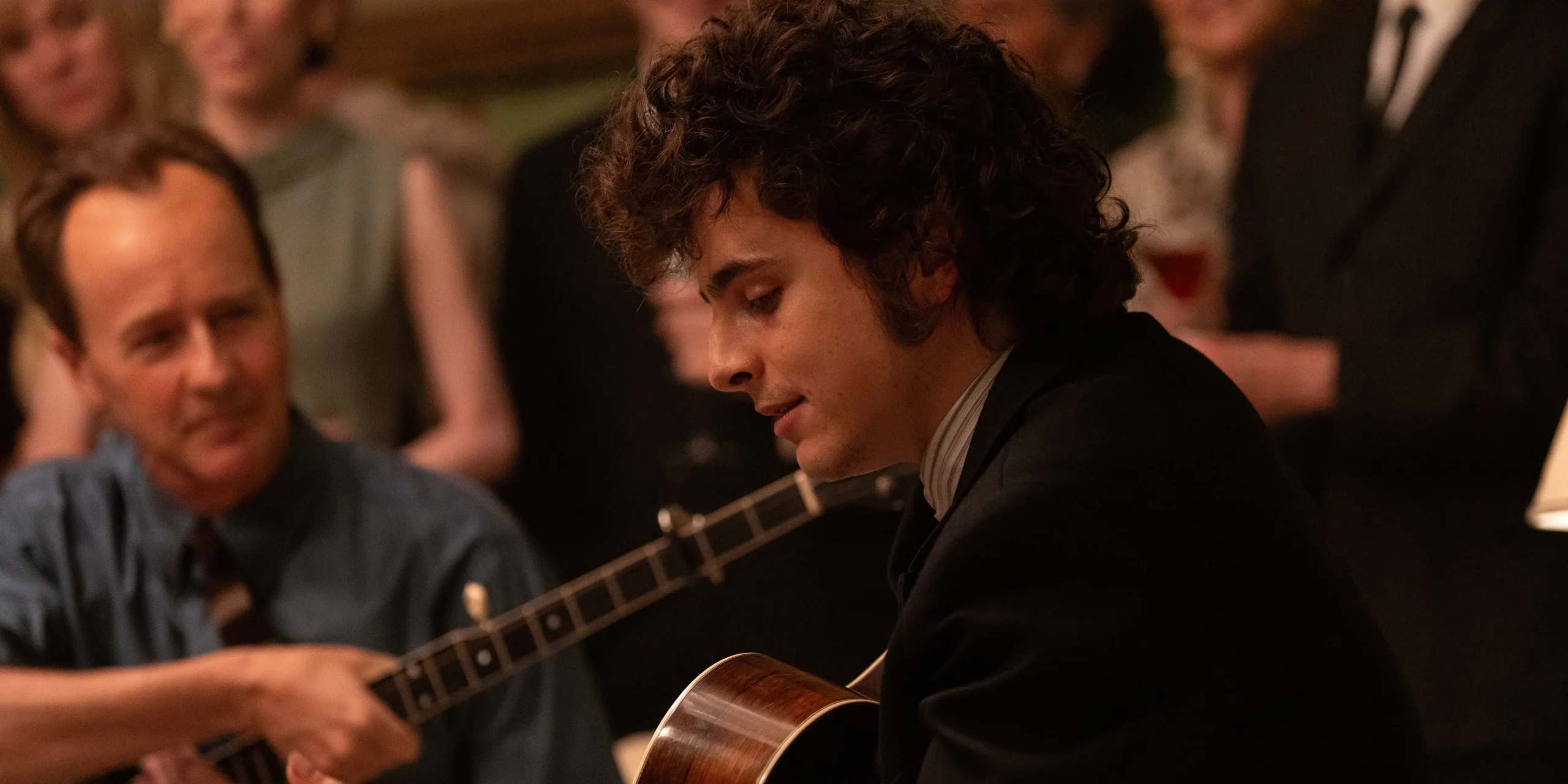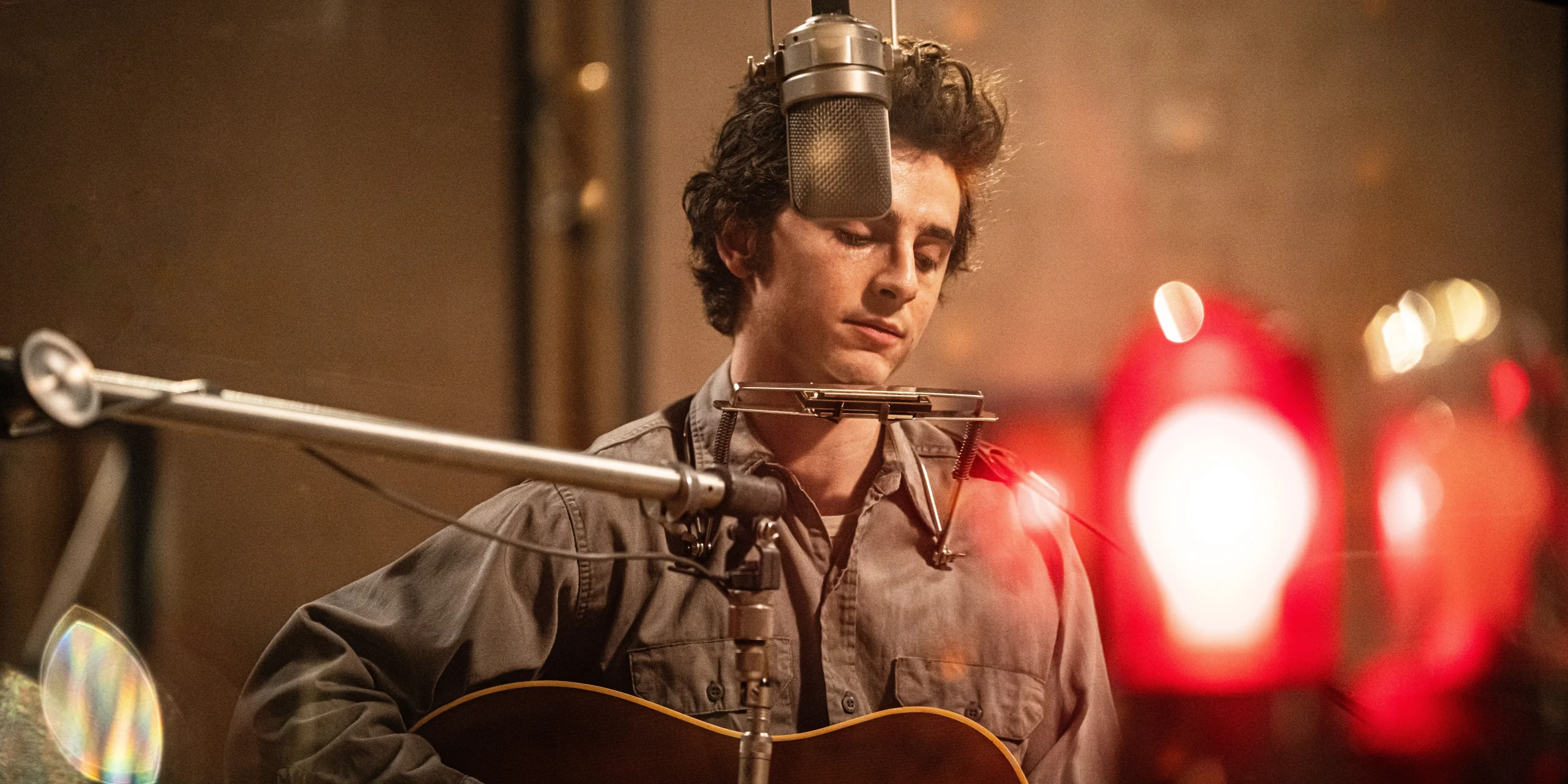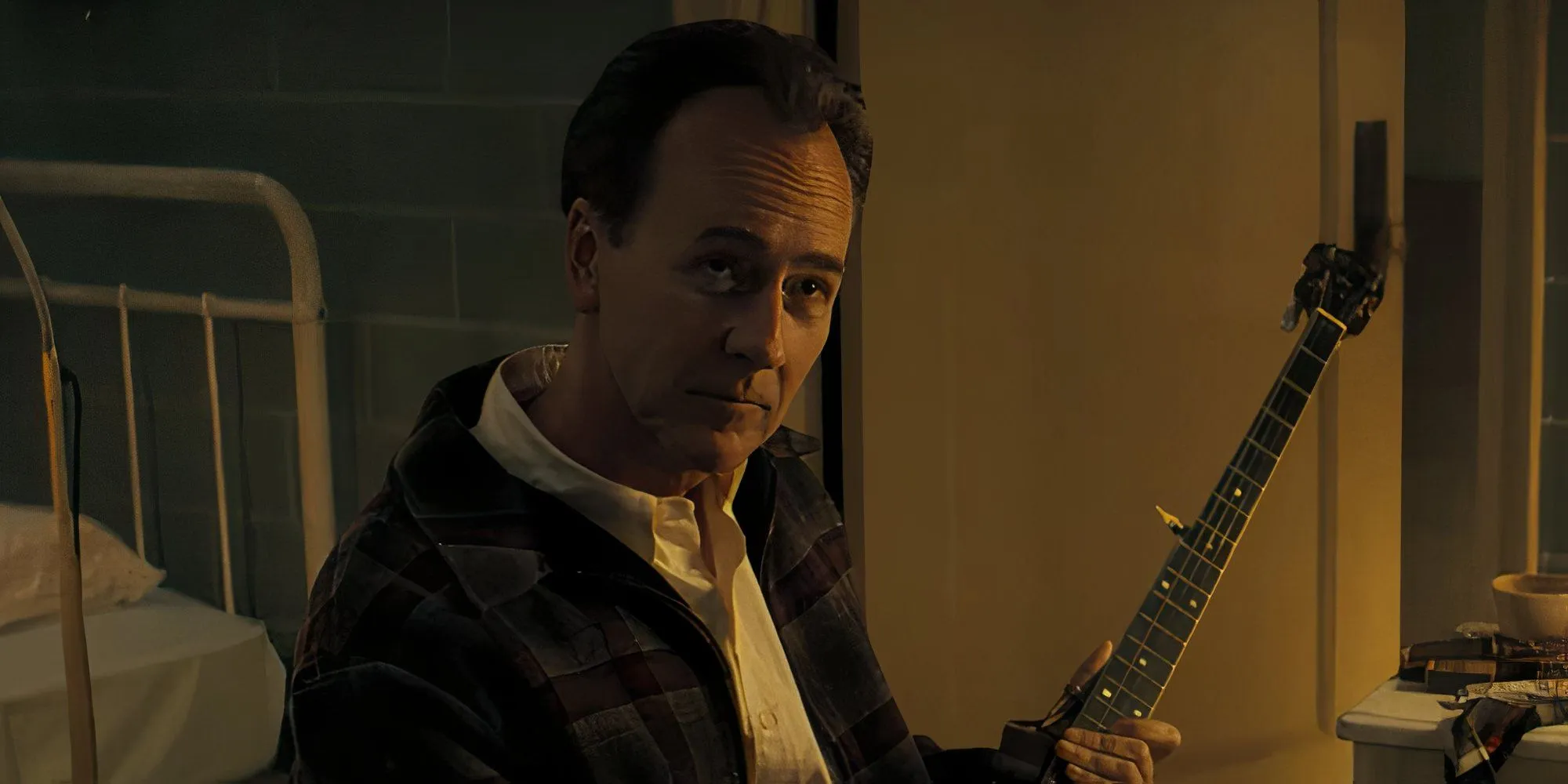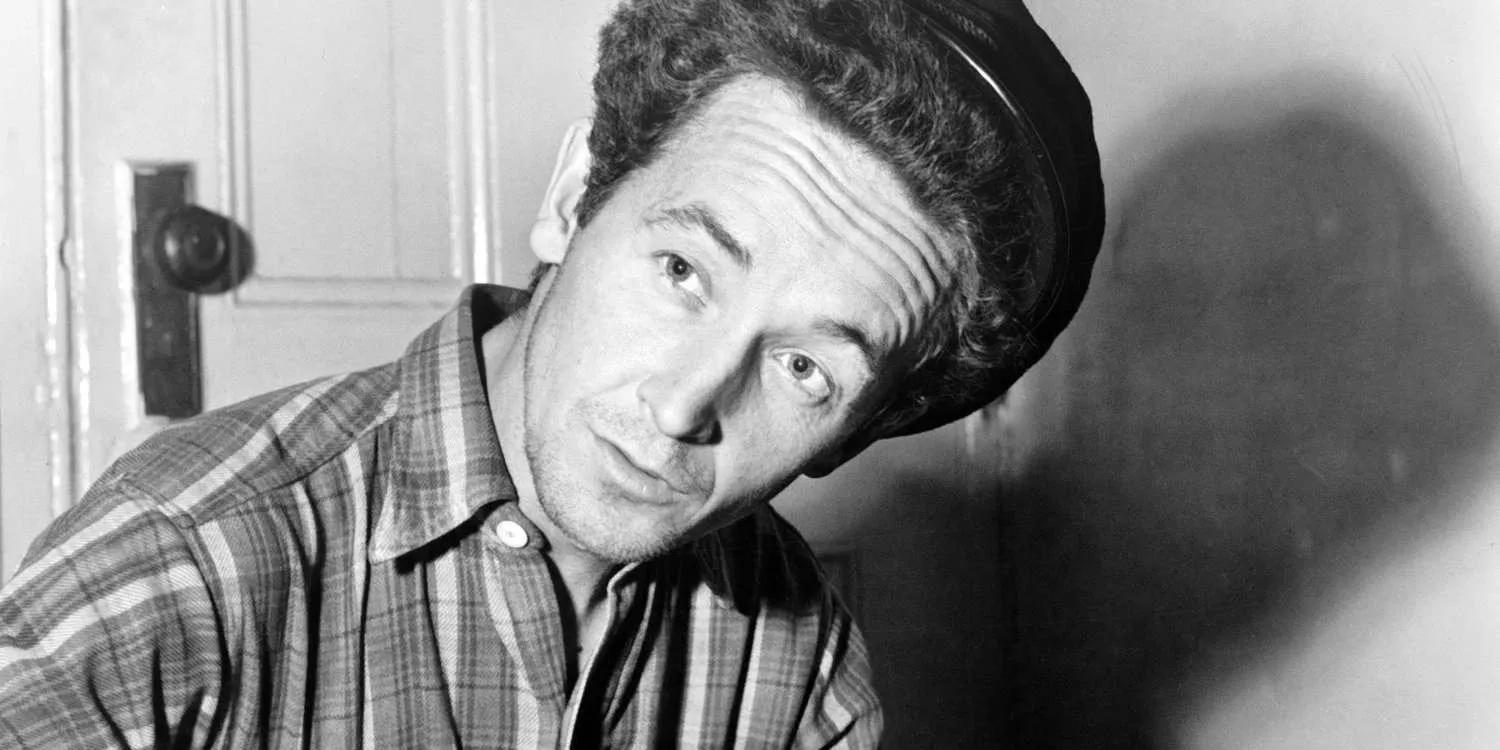
Warning: This article contains potential spoilers for A Complete Unknown.
Woody Guthrie emerged as a pivotal American folk singer-songwriter and served as a significant influence on Bob Dylan’s journey to stardom, notably portrayed in the film A Complete Unknown. Directed by James Mangold, the film chronicles Dylan’s aspirations as he migrates to New York City in the early 1960s, aiming for musical fame. With Timothée Chalamet taking on the role of Dylan, the narrative dives deep into the early turmoil and triumphs that shaped his legendary status in the music world. The film also showcases a talented supporting cast, featuring Edward Norton, Elle Fanning, and Boyd Holbrook.
Critical Acclaim for A Complete Unknown
A Complete Unknown has garnered widespread recognition among critics, particularly praising Chalamet’s portrayal of Dylan as one of the standout performances of 2024. The film’s soundtrack, screenplay, and the authentic representation of Dylan’s formative years during the 1960s have also received accolades. It has not only won several awards but has also gained nominations for three Critics’ Choice Awards and three Golden Globes. Several historical figures featured in the film, including Woody Guthrie, played instrumental roles in shaping Dylan’s eventual success.
Woody Guthrie and His Battle with Huntington’s Disease
Scoot McNairy as Woody Guthrie





Woody Guthrie began his professional journey in the 1930s as a radio host at KFVD in California. His rise to prominence in the 1940s established him as a formidable singer-songwriter, with his music articulating the struggles of the working class. Through songs like “Tear the Fascists Down,””Union Maid,”and the iconic “This Land Is Your Land,”Guthrie became a voice against racial and political injustice, inspiring countless musicians, including Dylan. A Complete Unknown poignantly illustrates Dylan’s pilgrimage to New York, which culminated in a meeting with Guthrie.
During their fateful encounter, however, Guthrie was hospitalized due to Huntington’s Disease, a genetic disorder that causes progressive degeneration of nerve cells. In the film, Guthrie is portrayed as being cared for by Pete Seeger at the time of Dylan’s visit, during which Dylan performs “Song to Woody.”This moment marks the beginning of a meaningful friendship between the young musician and his idol, as Dylan continued to visit and perform for Guthrie throughout his illness.
The Legacy of Woody Guthrie
Guthrie’s Death and Continued Influence

As the 1960s progressed, Guthrie’s health continued to decline, ultimately leading to loss of muscle control and speech. He was moved through various medical facilities before finding care at Creedmoor Psychiatric Center in New York. Reports indicate that Guthrie inherited Huntington’s Disease from his mother, who succumbed to the condition in 1930. Tragically, his two eldest daughters from his first marriage also inherited the disease, passing away at a young age.
Woody Guthrie passed away on October 3, 1967, at the age of 55, due to complications from Huntington’s Disease. In the aftermath, his second wife, Marjorie, took on the role of an advocate for Huntington’s Disease research, establishing the Committee to Combat Huntington’s Disease, which later evolved into the Huntington’s Disease Society of America (HDSA). This organization provides vital support and resources for individuals and families affected by the disease.
The enduring legacy of Woody Guthrie’s music continues to resonate within the industry. His works not only influenced Bob Dylan but also paved the way for future generations of artists. As showcased in A Complete Unknown, Guthrie’s contributions played a crucial role in Dylan’s ascent to acclaim, underscoring the interconnected nature of their artistic journeys.
Sources:
Mayo Clinic,
PBS News,
Woody Guthrie Center,
HDSA




Leave a Reply ▼